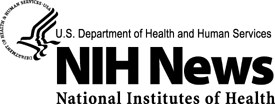Mouse Studies Show Gene Therapy Method Holds Promise in Targeting Tumor Blood Vessels for Destruction
Cancer researchers have reported the development of a novel method for delivering a therapeutic gene specifically to the blood vessels of tumors in mice. Once delivered, the gene produces a protein that damages the blood vessels and disrupts the blood flow to tumors but not to the surrounding tissue. These results obtained with this experimental model are encouraging, because the researchers’ method may be safer and cause fewer side effects than previously used methods for delivering the protein to tumors. The study, led by researchers at the National Cancer Institute (NCI), part of the National Institutes of Health (NIH), and The University of Texas M.D. Anderson Cancer Center in Houston, appeared in the January 1, 2009, issue of Cancer.
Blood vessels supply tumors with oxygen and nutrients that they need to grow beyond a certain size. Tumor necrosis factor-alpha (TNF-a), a protein produced by immune cells, has been shown to inhibit the growth of tumors by causing damage to their blood vessels. Since TNF-a can also damage the blood vessels of noncancerous tissues, systemic administration of the protein through the bloodstream can cause severe side effects.
Currently, TNF-a is used to treat human melanomas and sarcomas in patients’ limbs or organs by isolating the blood vessels that supply the limb or organ from the rest of the body’s circulatory system. This treatment approach produces local toxicity but little systemic toxicity. Since most tumors are located in other areas of the body where this therapeutic approach cannot be used, the research team, led by Steven K. Libutti, M.D., and Anita Tandle, Ph.D., of NCI’s Center for Cancer Research, in collaboration with Renata Pasqualini, Ph.D., and Wadih Arap, M.D., of M.D. Anderson, developed a novel gene therapy method that allowed them to target the delivery of TNF-a to tumor blood vessels and avoid damage to noncancerous tissues.
In gene therapy, a vector, or delivery vehicle, is used to carry a gene to a target cell or tissue. Once the gene is delivered, it is turned on, or expressed, and a protein is produced. In their study, the research team found that a type of vector known as an adeno-associated virus phage (AAVP) could effectively deliver the TNF-a gene to the blood vessels of human melanoma tumors in mice. AAVP is a hybrid vector that is made from a bacterial virus, or bacteriophage, which normally infects only bacteria, and an adeno-associated virus, which infects humans and some other primate species. Bacteriophage-based vectors have a long history of safe delivery to humans. The bacteriophage component was engineered to target and infect specific mammalian cells, namely tumor blood vessel cells, by modifying the bacterial virus’ outer-surface protein. The adeno-associated virus component was used to facilitate TNF-a gene expression in the targeted cells.
Four days after the researchers injected AAVP vectors that contained the TNF-a gene into the tail vein of tumor-bearing mice, they detected TNF-a in the human tumor tissues. During the study, the tumors became smaller and the number of blood vessels decreased, which is a sign of damage to the tumor vasculature, the network of vessels supplying blood to the tumor. The researchers did not detect TNF-a or the targeted vector in noncancerous tissues of the mice, including the heart, lung, kidney, skeletal muscle, and brain tissue. Although they found the targeted vector in the liver and spleen of the mice, the TNF-a gene was not expressed.
"TNF-a is a promising anticancer agent, but its use is limited because of its toxicity," said Tandle. "Our findings show that a hybrid vector, such as AAVP, can be targeted to directly deliver TNF-a to tumors with minimal toxicity to other tissues. In addition, this vector has potential for use with other agents that target tumor blood vessels."
Libutti and Tandle’s team is working to test the AAVP vector in animal models of spontaneous cancers (that is, naturally-occurring cancers as opposed to transplanted cancers), which could speed progress toward the evaluation of this treatment strategy in clinical trials.
For more information on the Comparative Oncology Trials Consortium, please go to http://ccr.cancer.gov/resources/cop/COTC.asp.
For more information on Dr. Libutti’s research, please go to http://ccr.cancer.gov/staff/staff.asp?profileid=5759.
NCI leads the National Cancer Program and the NIH effort to dramatically reduce the burden of cancer and improve the lives of cancer patients and their families, through research into prevention and cancer biology, the development of new interventions, and the training and mentoring of new researchers. For more information about cancer, please visit the NCI Web site at http://www.cancer.gov or call NCI's Cancer Information Service at 1-800-4-CANCER (1-800-422-6237).
The National Institutes of Health (NIH) — The Nation's
Medical Research Agency — includes 27 Institutes and
Centers and is a component of the U.S. Department of Health and
Human Services. It is the primary federal agency for conducting
and supporting basic, clinical and translational medical research,
and it investigates the causes, treatments, and cures for both
common and rare diseases. For more information about NIH and
its programs, visit www.nih.gov.
Reference: Tandle A, Hanna E, Lorang D, Hajitou A, Moya CA, Pasqualini R, Arap W, Adem A, Starker E, Hewitt S, and Libutti SK. Tumor vasculature targeted delivery of tumor necrosis factor-alpha. Cancer, Volume 114, Issue 1. |

